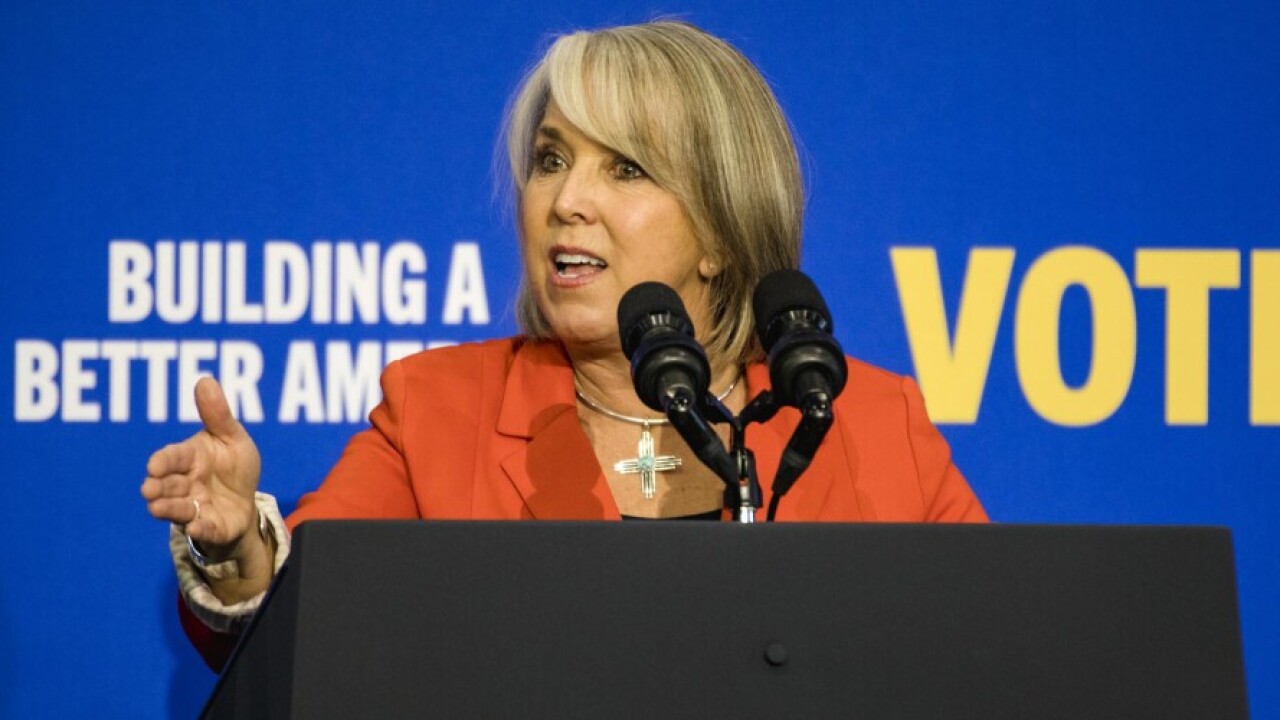SAN ANTONIO — “Numerous” municipal market participants have queried the Securities and Exchange Commission about bringing muni bond abuses to its attention under a new congressionally mandated program that provides incentives for whistle-blowers, a top SEC enforcement attorney told bond attorneys gathered here Thursday.
Mark Zehner, deputy director of the SEC’s new municipal and public pension fund enforcement unit, said the inquiries come as the commission begins to implement a provision in the Dodd-Frank Wall Street Reform and Consumer Protection Act that requires it to give a percentage of any funds recovered in an enforcement action to individuals who brought the wrongdoing to light.
Zehner, who spoke at the National Association of Bond Lawyers’ Bond Attorneys Workshop here, declined in an interview to generically describe the abuses identified by the would-be whistle-blowers.
He also cautioned that it remains to be seen if any of these individuals will ultimately qualify as whistle-blowers, as they have to jump through numerous hoops.
For instance, their claims would have to comport with forthcoming rules that the SEC must write, and they would not qualify if they identify behavior the SEC is already investigating, he said.
Specifically, Dodd-Frank requires the SEC, in any action in which it levies sanctions in excess of $1 million, to compensate whistle-blowers who provide the original information with between 10% and 30% of the amount of the sanctions, according to a summary of the law by Davis Polk & Wardwell LLP.
This expands the SEC’s current authority, which caps such compensation at 10% of collected penalties, and restricts whistle-blower compensation to insider trading.
The bill also establishes an investor protection fund of up to $300 million that the SEC may use to pay whistle-blowers.
Elaine Greenberg, the head of the muni and public pension fund enforcement unit, told NABL members during a separate panel that the SEC has, among its new enforcement tools under Dodd-Frank, the ability to assess monetary penalties against unregulated entities like issuers in its antifraud cease-and-desist proceedings. Previously, it could only impose monetary fines in these actions against regulated entities and individuals.
Meanwhile, SEC commissioner Elisse Walter, who is leading a series of field hearings that will lead to a report recommending legislation and regulatory improvements to the muni market as well as industry “best practices,” stressed that she is keeping an open mind during the process.
Speaking yesterday, Walter disputed the notion by some market participants that the SEC is using the field hearings to confirm its existing views about the muni market and what should be changed.
She said that throughout her career she has demonstrated an ability to “listen and to change my mind if I believe that that’s warranted and to also have my views affected by those with greater expertise and greater experience.”
She stressed the SEC wants input from market participants on what it should do concerning munis, and urged them to send comments or call commission officials.
“I do have preliminary thoughts,” she acknowledged, but said she is “willing to guarantee that the report that we would write today without the benefit of hearings is not the report that we would write at the end of the hearings process.”
Though Walter stressed she is keeping an open mind, she also said she believes the SEC’s principle goal should be to improve the timeliness and quality of information disclosed to those who buy municipal securities.
“What we need is better and more prompt disclosure. Why? Because investors deserve it. As to the who, where, when, and how, my mind continues to explore the options,” she said. “Who should be responsible for providing that disclosure? Where should that disclosure be made? When should that disclosure be made and how should that disclosure be made?”
While the SEC’s recent amendments to its Rule 15c2-12 on disclosure — which generally boost the quantity and timeliness of continuing disclosures and apply to continuing disclosure agreements signed on or after Dec. 1 — make improvements, she outlined some additional steps the SEC could take to make further improvements.
For instance, absent legislative authority to directly regulate the muni market, she said the SEC should continue to leverage its existing antifraud authority by updating its 1994 guidance on how issuers can avoid running afoul of the federal securities laws. In the interview, she said SEC staff have been working on updating the guidance for several months, but will likely not release it until after the field hearings.
Walter also outlined her concerns about the lack of pre-trade price transparency for municipal bonds, which are currently traded in an over-the-counter, decentralized, dealer-intermediated market. She noted that this has not always been the case, and that as recently as the 1920s, munis were actively traded on the New York Stock Exchange, a practice that ended in 1929.
Great strides have been made in post-trade transparency because of the Municipal Securities Rulemaking Board’s real-time reporting requirements and EMMA website, she said. However, because of the low liquidity levels of many bonds, trade data may be many weeks or months old.
Walter said it will likely take years to improve pre-trade transparency, but she outlined some possibilities, such as requiring broker-dealers to report their daily marks on inventory and customer holdings or establishing a national listing service, similar to an existing one for the real estate market, where all municipal dealers could list their muni inventories.





